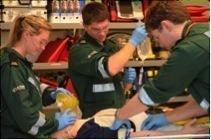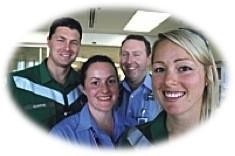Engaging in community conversation: A means to improving the paramedic student clinical placement experience.
Blog post by Helen Hickson
Dr. Svante Lifvergren wrote about our work saying, “Prospering AR processes always entail practices to involve all the concerned stakeholders on an equal ground for the joint creation of actionable knowledge. In this paper, we learn how ‘community conversations’ have been adapted to a new context – a three stage democratic dialogue focusing on the key issues regarding the improvement of clinical placements for paramedical students in Australia. The authors share lessons learned from the process, thus giving us inspirational ideas on how we might embark on similar processes in other contexts.”
Community conversations are structured, inclusive conversations that bring together a group of people to engage in meaningful conversation, share knowledge and ideas, and discuss solutions to complex problems. The origins of community conversations are in collaborative research methodologies like appreciate inquiry and community based participatory and action research methodologies. Community conversations have been used in a broad range of cultural contexts around the world and can be used to encourage community dialogue and to engage key stakeholders to talk openly about issues that affect everyone.  In February 2013, La Trobe Rural Health School at La Trobe University in Bendigo, Australia, hosted a conference titled ‘Paramedic Education and Leadership’. One of the aims of the conference was to bring together paramedics, ambulance service managers and paramedicine students to talk about the key issues surrounding paramedicine clinical placements. The community conversation approach was interwoven with the conference program and participants moved seamlessly from the conference presentations to the community conversations. This article focuses on the methodological aspects of the research, and the experience of using ‘community conversation’ as a research approach.
In February 2013, La Trobe Rural Health School at La Trobe University in Bendigo, Australia, hosted a conference titled ‘Paramedic Education and Leadership’. One of the aims of the conference was to bring together paramedics, ambulance service managers and paramedicine students to talk about the key issues surrounding paramedicine clinical placements. The community conversation approach was interwoven with the conference program and participants moved seamlessly from the conference presentations to the community conversations. This article focuses on the methodological aspects of the research, and the experience of using ‘community conversation’ as a research approach.
Helen Hickson, Peter O’Meara, and Chris Huggins
You can access this article for free for the next 30 days by using THIS LINK.
After you’ve had a chance to read this piece, please share your thoughts, ideas, or experiences with our community so we can continue this discussion! The AR+ site is hosting a discussion forum for us to talk about our reactions and experiences related this topic. You can access the discussion forum HERE.
A quick (and free) registration is all that’s needed to join the discussion.
- Making Public Deliberations Inclusive with Mixed Methods AR - October 26, 2020
- Participatory action research with Aboriginal Elders: Ngulluk Koolunga Ngulluk Koort project - October 12, 2020
- Bringing the relational self to ART: Interview with Dr. Yvonne Skipper - October 1, 2020
